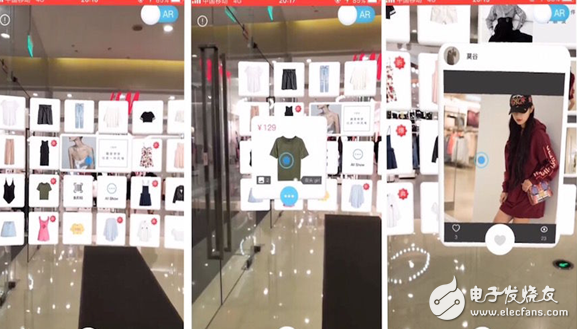The Internet has significantly transformed the traditional retail landscape, accelerating the decline of physical stores. Many brick-and-mortar businesses are quietly blaming Ma Yun and Alibaba for their struggles, with some fearing they may not survive in this new digital era. Over the past decade, e-commerce has exploded, yet the offline shopping experience has remained largely unchanged. The process of trying on clothes in a store is still similar to what it was thousands of years ago—only now, payments can be made more conveniently through mobile devices.
Xiaobai Wall aims to revolutionize the current shopping model by integrating AR technology into real-world environments. Through augmented reality, consumers will see enhanced information on their phones, such as virtual try-ons, discounts, product details, and even interactive store designs. If Pokémon Go could transport users into a fantasy world, Xiaobai Wall hopes to open "eyes of the sky," allowing shoppers to experience a more immersive and detailed version of physical stores.

This team, driven to reshape how people shop, isn't new to AR development. They have been working in the AR software space for three years and previously launched an AR game called Wonderland. With Apple’s release of ARKit and the integration of AR features in new iPhone models, the foundation for AR applications has matured. This opportunity inspired them to enter a market with greater potential and a broader audience.
When entering the market early, Xiaobai Wall creates virtual layouts for physical stores. As the product gains traction, the team plans to refine the user experience based on feedback and eventually turn Xiaobai Wall into a comprehensive tool that allows merchants to design their own store spaces.
Store owners will have full control over virtual decorations, adapting them to seasonal trends. According to Liu Qiuyang, the founder of Xiaobai Wall, future store displays and mannequins might be partially replaced by Xiaobai Wall, offering more flexibility and faster updates in the virtual space.
Marketing functions are also being integrated into this virtual environment. Liu mentioned that in the future, when customers visit Teenie Weenie, they might interact with a virtual bear handing out red envelopes, creating a fun brand engagement. The CTO, Xiangyang, added that merchants can independently manage and launch marketing campaigns through Xiaobai Wall's service platform.
In today’s business environment, online traffic is shifting downward, and physical stores are making a comeback. The apparel industry, in particular, remains strong due to the need for consumers to physically try on clothes. This is where Xiaobai Wall sees its opportunity. By partnering with Teenie Weenie, it enhances the offline shopping experience. Once the apparel sector matures, Xiaobai Wall plans to expand into leisure and entertainment sectors like cafes and bars, adding more social features.
By serving the B-side (businesses), Xiaobai Wall improves their operational efficiency and ultimately enhances the shopping experience for end-users. The company generates revenue by charging businesses for its services.
While VR shopping concepts like Ali Buy+ and ShelfZone have existed, they still face challenges such as motion sickness and unclear visuals. AR shopping has found more success in home improvement, like visualizing furniture placement. Compared to existing products, Xiaobai Wall stands out with its unique features and focus on enhancing the physical retail experience.
LCD Interactive Whiteboard,Interactive Intelligent Panel,Smart Interactive Flat Panel,
Shanghai Really Technology Co.,Ltd , https://www.really-led.com